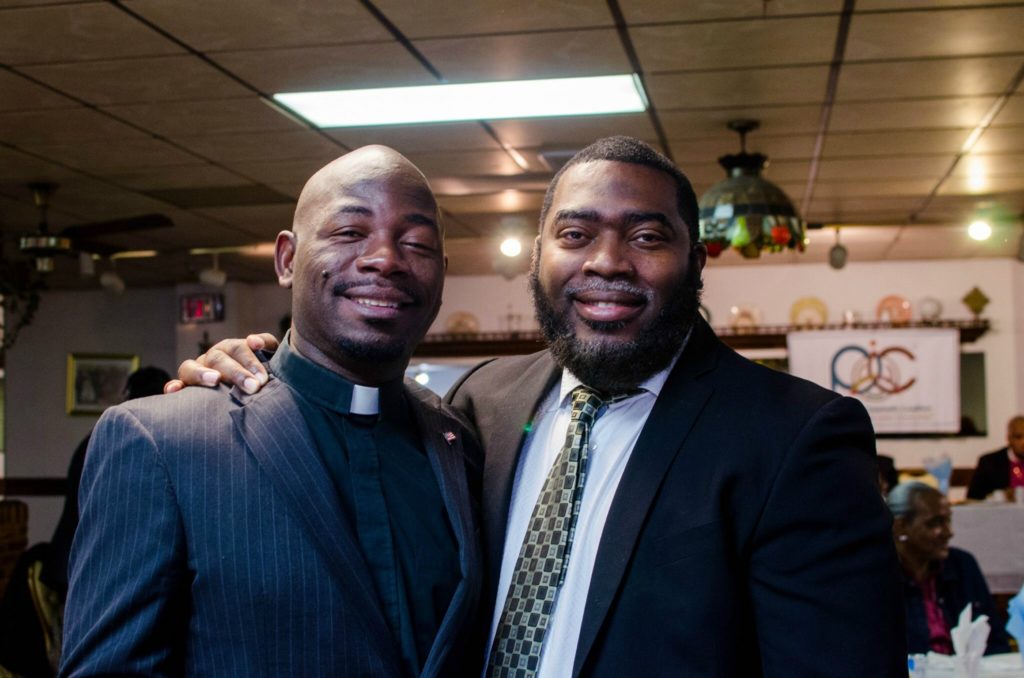
By Daryl Crouch
Every Sunday morning, local pastors in our community text one another to offer prayers and support. We believe in one another and champion one another in the work God has given to us. Any notion of competition is put aside as we all labor to reach the thousands of our neighbors who are without Christ.
It’s healthy for pastors to be friends, but a lot of things began to change in our community when our good friendships turned into gospel partnerships. That happens when local churches work together and share ministry to the local community.
Kingdom-minded pastors read Jesus’ prayer for unity of believers in John 17 not as a lofty aspiration, but as a blueprint for gospel ministry. — @darylcrouch Click To TweetThis shift from friendship to partnership requires a different level of collaboration and cooperation. It challenges the way we view our own church’s responsibility to join Jesus’ kingdom work.
Kingdom-minded pastors, for example, read Jesus’ prayer for unity of believers in John 17 not as a lofty aspiration, but as a blueprint for gospel ministry. Jesus prayed,
“May they all be one, as you, Father, are in me and I am in you. May they also be in us, so that the world may believe you sent me” (John 17:21).
Jesus viewed the unity of believers as a requirement for world evangelism.
So how do local church pastors lead their congregations to work together? What do we do with theological and denominational distinctions? How do we shepherd our flock, and still join Jesus’ kingdom work?
This kingdom unity calls for at least three personal convictions and three practical commitments. Let’s consider them here.
Three Personal Convictions
1. Pursuing kingdom unity honors Jesus.
Jesus not only prayed for our unity, but in Matthew 18, He instructed believers to reconcile differences before giving an offering. Legitimate worship requires our unity.
Legitimate worship requires our unity. — @darylcrouch Click To TweetThe apostle Paul’s letters to the churches in Ephesus and Corinth call for unity among diverse believers in the same city. Pastors pursue unity because we believe that it is a primary, not a secondary priority.
2. Pursuing kingdom unity honors one another.
Jesus expected His disciples to be united in heart and mission, yet in the current era, our divisions mark the personal relationships and public reputations among far too many Christian leaders.
No one would accuse the apostle Paul of theological compromise, yet he consistently called for believers to unite. Kingdom-minded pastors honor one another in private and public because faithfulness to Jesus demands it.
3. Pursuing kingdom unity sanctifies our hearts.
Even faithful pastors find ourselves isolated and influenced by the narratives running in our own minds or by our small circle of associates. The apostle Peter needed Paul, and Paul needed Barnabas.
The unity of fellowship with other pastors exposes our blind spots, challenges tribal assumptions, and helps us to follow Jesus with a purer heart. Self-aware pastors know this, so we invite other pastors into our lives to receive all the Holy Spirit would teach us through these friendships.
Three Practical Commitments
1. Pursuing kingdom unity changes our vision of church success.
When the local church runs like an organization, its own flourishing becomes primary. When the local church views itself as a missionary, however, the flourishing of our neighbors and the nations is the big win.
When the local church runs like an organization, its own flourishing becomes primary. When the local church views itself as a missionary, the flourishing of our neighbors and the nations is the big win. — @darylcrouch Click To TweetKingdom-driven pastors organize church programming, recruit staff and volunteers, develop prayer initiatives, and allocate financial resources around efforts that will benefit people who may never attend our church. The metrics of success shift from church-centered to community-centered. Church growth is vital, but it’s not the only measure of progress. Community transformation now motivates our work and becomes the grid through which we evaluate our gospel impact.
2. Pursuing kingdom unity champions neighboring churches.
“We do church better than anyone else” is not the mindset of a kingdom-minded pastor. Instead, we intentionally support other local churches and encourage people to engage with them. Every community needs more healthy churches, so we look for ways to start churches and help existing churches be successful.
Every community needs more healthy churches, so kingdom-minded pastors look for ways to start churches and help existing churches be successful. — @darylcrouch Click To TweetWe may not all hold to the same theological distinctions, but as co-laborers in the gospel we care about our neighbors just the same. As a result, we remove the barriers between us, look for ways to work together, and cast a kingdom vision for our churches.
3. Pursuing kingdom unity builds community partnerships.
In the 1990s, Henry Blackaby challenged us in his work Experiencing God to look around and see where God is already working and to join Him there. God is already working in every community through schools, hospitals, government, businesses, and nonprofits, just to name a few.
Rather than creating new church-driven programs, kingdom-minded pastors lead their congregations to collaborate with other churches and to build partnerships with community leaders and organizations who are already serving our neighbors.
When pastors invest in one another and lead their congregations to do the same, Jesus’ prayer for our unity is answered and the gospel transforms the unreached people in our neighborhoods. Click To TweetWe discover how we can serve their needs with volunteers, material resources, and prayer. We adopt their agenda rather than asking them to join ours. And through our service, we meet real needs and build significant relationships that open new opportunities for ministry.
Kingdom partnerships don’t come naturally, and their fruit is not immediately clear. But when pastors invest in one another and lead their congregations to work together in practical ways, Jesus’ prayer for our unity is answered and the gospel moves beyond our reach to transform the unreached people in our own neighborhoods.

Daryl Crouch
Daryl Crouch is the executive director of Everyone’s Wilson, a network of gospel-loving churches working together for the good of the community. Prior to this role, he pastored churches in Texas and Tennessee for 28 years. He and his wife Deborah have four children.








